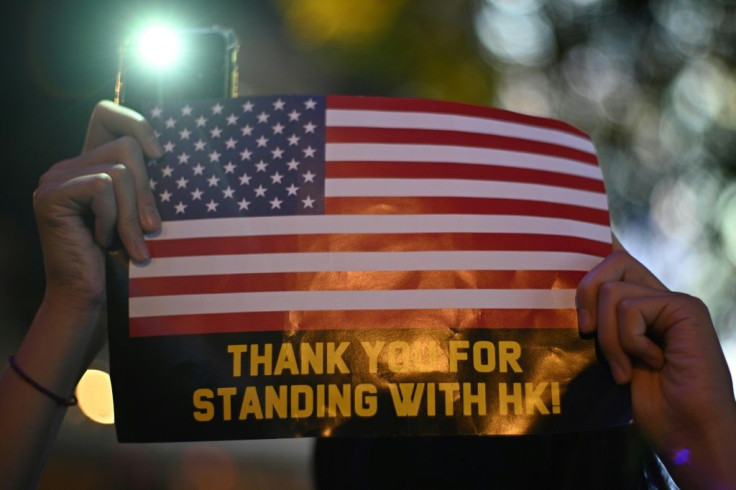Hong Kong Human Rights Act A 'Serious Provocation' Against China, Beijing Media Says

The Chinese Communist government and state-run media have responded with anger to the almost unanimous passage of the Hong Kong Human Rights and Democracy Act on Wednesday by the United States Senate. The next step is to get President Donald Trump’s signature which is not a guarantee.
If Trump does sign it into law, the Act requires an annual confirmation that China is maintaining certain freedoms in Hong Kong. If it is not confirmed, Hong Kong might lose its status as a “special trader” which would be a huge setback to the Hong Kong economy.
At present, China’s main concern in Hong Kong is the unrest that began in June over a now dead extradition bill that has turned into a major confrontation. China may achieve a passing grade on human rights in Hong Kong but the language of the bill allows the U.S president to impose sanctions on violators not only in Hong Kong but on “other violations of internationally recognized human rights in the Asian financial hub.”
The keyword in that statement is “other violations” where China has a less than stellar reputation in the global community over past and present abuses. The treatment of Uighur Muslims in China’s northwestern region of Xinjiang is a prime example with an estimated one million people detained in detention camps in what China calls an effort to stop terrorism. China’s score for maintaining human rights in Xinjiang might be a cause for any U.S. president to levy sanctions than whatever happens in Hong Kong.
China’s reaction came from several sources, but they all had a similar tone of outrage over the vote:
- The state-owned People's Daily described it in an editorial as "a piece of waste paper," and a "serious provocation against the entire Chinese people.”
- State-run tabloid The Global Times chided that instead of the Hong Kong Human Rights and Democracy Act, it should be called the "Support Hong Kong Violence Act."
- Bill Bishop, an expert on China, said in his daily newsletter named Sinocism that state television CCTV had 11 segments criticizing the U.S. and the legislation during its Wednesday evening news broadcast.
- The Chinese government has repeatedly called on the U.S. to stop "interfering" in their internal affairs, going so far as to accuse the U.S. of being partially behind the lengthy demonstrations in Hong Kong.
China’s Foreign Ministry spokesman Geng Shuang, who recently defended the interrogators of a detained Hong Kong British consulate employee against torture allegations, commented on the bill calling it a "serious violation of international law" and said the Chinese government opposed and condemned it.
He said, "I'd like to stress once again that Hong Kong is part of China, and Hong Kong affairs are China's internal affairs. We urge the US to grasp the situation, stop its wrongdoing before it's too late, and immediately take measures to prevent this act from becoming law.” Now it is all up to Trump to decide if he will sign the bill or not.
© Copyright IBTimes 2025. All rights reserved.





















